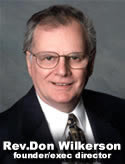
|
In
1958
a vision
gave birth
to a ministry
called Teen Challenge
...and it caught fire! |
 |
Almost 50 years later,
that fire
now burns
around the world and
the VISION continues to grow! |
|
| |
Global Teen Challenge has been
facilitating the creation and growth of Teen Challenge
centers worldwide since 1995.
|
| |
|
Don Wilkerson's passion and burden to reach the drug
addict, gang member and prostitute is as fresh today as
it was when he helped his brother David Wilkerson
establish the first Teen Challenge ministry in New York
City. |
| |
Today, Global Teen
Challenge is passing that torch on to men and women
around the world who've caught the same vision. |
| |
|
|
Teen Challenge was founded in 1958 by the Reverend David Wilkerson. From the
beginning, the mission of Teen Challenge has been to provide youth, adults and families with an effective
and comprehensive Christian faith-based solution to life-controlling drug and alcohol problems in
order to become productive members of society. By applying biblical principals, Teen Challenge endeavors
to help people become mentally sound, emotionally balanced, socially adjusted, physically well, and
spiritually alive. |
Teen Challenge is widely recognized as the largest most successful program of its kind. Now, with over 230 Centers and 180 outreaches in 90 countries, Teen Challenge provides practical solutions to people suffering life-controlling problems, with drugs and alcohol, through the power of God's love. For over 48 years Teen Challenge has been reaching out with a proven record of changed lives around the world. |
|
| Our
Mandate: |
David Wilkerson,
the founder of Teen Challenge |
| Further the preaching of the Gospel |
| Our Mission: |
| Equip, motivate and encourage national
pastors, missionaries and laypeople for ministry to
people bound by life controlling addictions. |
| Our Method: |
- Train leaders and staff in Operation,
Administration and Ministry
- Provide teaching and classes in biblical studies
- Provide fellowship & support between existing
centers globally
- Raise funds to build, renovate and sustain Teen
Challenge centers
- Open new Teen Challenge centers & outreaches
worldwide
- Assist national local pastors and missionaries
- Recruit future workers and leaders
- Facilitate short-term missions trips
- Organize evangelism campaigns
- Prepare for re-entry
|
|
The following results have come from research conducted by the National Institute
of Drug Abuse in 1975, and a comparative study conducted by Northwestern University in 1994. The most
recent, published in 1999, is a comparison of treatment effectiveness in drug and alcohol rehabilitation
centers and was conducted by Aaron Bicknese, PhD, of Northwestern University.
- 86.6% of graduates after seven years remained drug and crime free. This
is opposed to a 6-7% rate for secular programs.
- 92% of the respondents claim that Teen Challenge has had a great impact
on their lives.
- 72% of the graduates continued their education upon completion of the program.
These areas include GED, college education, and Bible school.
- 84% of graduates attend church regularly.
- They found that Teen Challenge graduates were “more likely to be living
normal lives and not need further treatment.”
- They found that students at Teen Challenge had an attitude of “It
is a privilege to be here.”
- 90% of Teen Challenge graduates were employed one and two years later, while
41% were employed after other drug programs.
- 87.5% of the graduates did not need further treatment (90% considered themselves
addicted to drugs upon entering the program.)
- 92% of the graduates reported good to excellent health, whereas only 59%
of graduates of secular programs claim good health.
- 70% of the graduates reported that their family relationships have greatly
improved since leaving Teen Challenge.
As a result of these surveys, indicators of success include: stabilized life-style
due to their commitment to Jesus Christ, employment with some level of stability, financial independence,
an absence of trouble with police, an ability to enjoy freedom without condition or supervision, and
little need for additional drug treatment once completing the Teen Challenge program. |
 |


